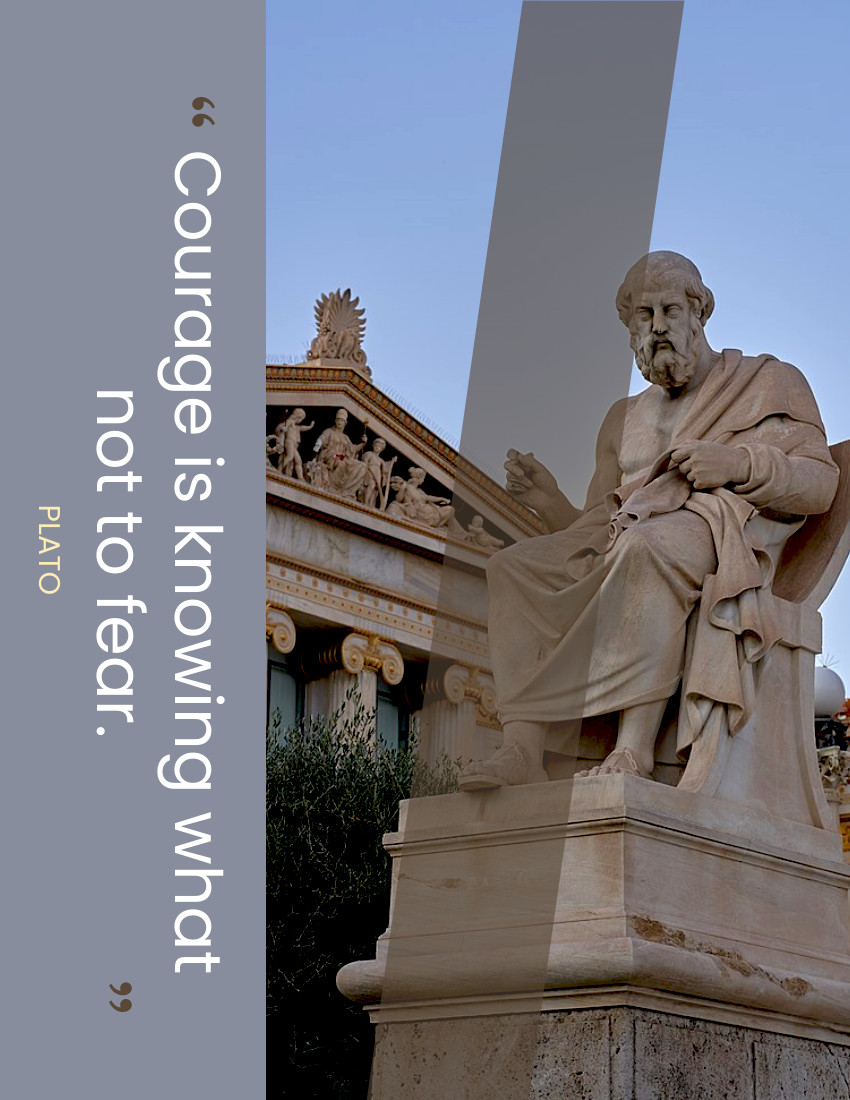Courage is knowing what not to fear.
- Plato
About Plato
Plato was a Greek philosopher born in Athens during the Classical period in Ancient Greece. He founded the Platonist school of thought and the Academy, the first institution of higher learning on the European continent.
Plato is a central figure in the history of Ancient Greek philosophy and the Western and Middle Eastern philosophies descended from it. He has also shaped religion and spirituality. The so-called neoplatonism of his interpreter Plotinus greatly influenced both Christianity (through Church Fathers such as Augustine) and Islamic philosophy
Plato was an innovator of the written dialogue and dialectic forms in philosophy. He raised problems for what later became all the major areas of both theoretical philosophy and practical philosophy. His most famous contribution is the theory of Forms known by pure reason, in which Plato presents a solution to the problem of universals, known as Platonism
Click here to read the flipbook.
Philosophical influences
His own most decisive philosophical influences are usually thought to have been, along with Socrates, the pre-Socratics Pythagoras, Heraclitus and Parmenides, although few of his predecessors' works remain extant and much of what we know about these figures today derives from Plato himself.
Unlike the work of nearly all of his contemporaries, Plato's entire body of work is believed to have survived intact for over 2,400 years. Although their popularity has fluctuated, Plato's works have consistently been read and studied.
Influence of Pythagoras
Although Socrates influenced Plato directly as related in the dialogues, the influence of Pythagoras upon Plato, or in a broader sense, the Pythagoreans, such as Archytas also appears to have been significant. Aristotle claimed that the philosophy of Plato closely followed the teachings of the Pythagoreans, and Cicero repeats this claim: "They say Plato learned all things Pythagorean."
Pythagoras held that all things are number, and the cosmos comes from numerical principles. He introduced the concept of form as distinct from matter, and that the physical world is an imitation of an eternal mathematical world. These ideas were very influential on Heraclitus, Parmenides and Plato.




















































